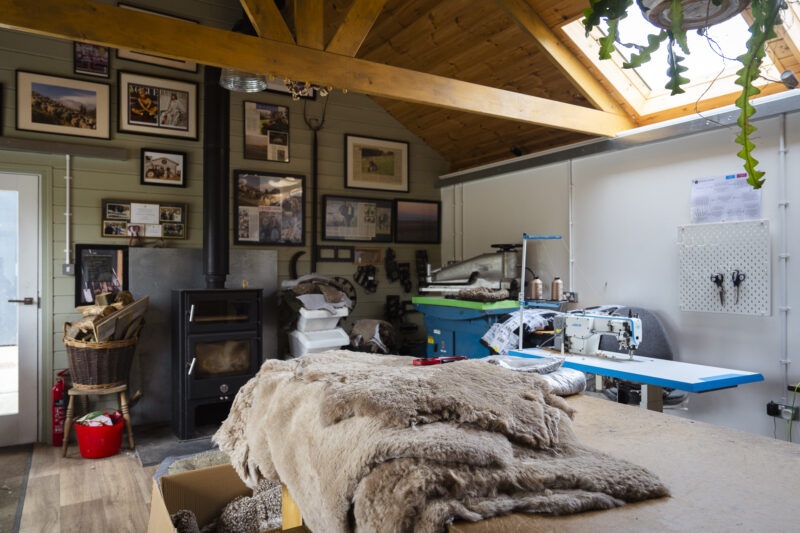The Dartmoor Shepherd, a holistic sheep farm in Devon
In the rugged and protected landscape of Dartmoor National Park lies The Dartmoor Shepherd, a one-of-a-kind sheep farm with a holistic and organic approach to farming. Lewis and Flora are truly passionate about their flock of rare Dartmoor longwool sheep breeds. They apply an innovative concept of sheep herding that uses the animals to mimic nature. We visited them on their farm, where we helped the sheep change pastures while the lovely couple shared their inspiring story with us.
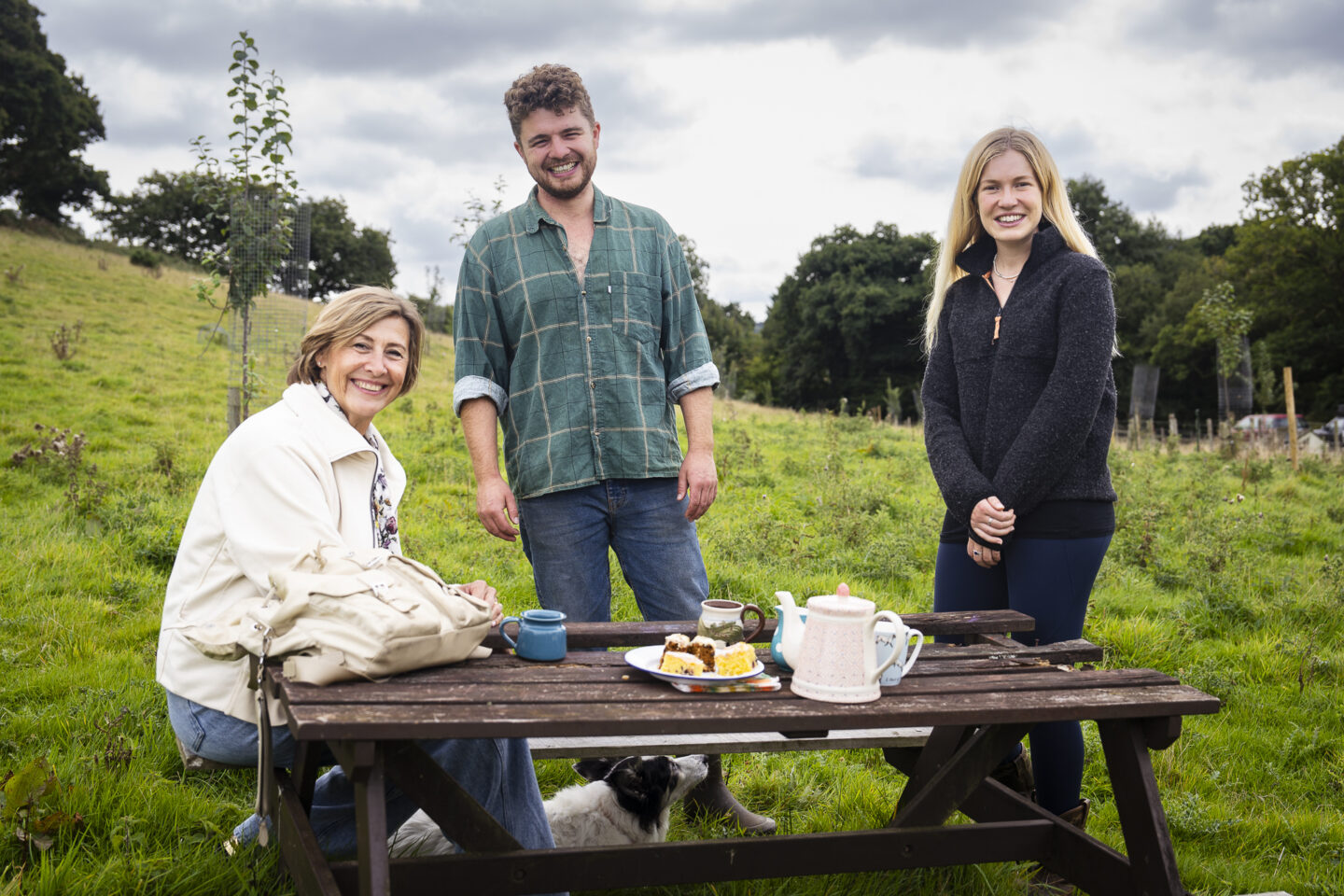
The story of Lewis and Flora
As soon as they finished their studies, Lewis, with a degree in land agency, and Flora, with one in marketing, started expanding a sheep flock. Lewis had been given some sheep by his parents a few years earlier and kept them on a plot owned by his family. Those sheep became the foundation for expanding the flock. Neither of them grew up on farms, so they had to start from the ground up.
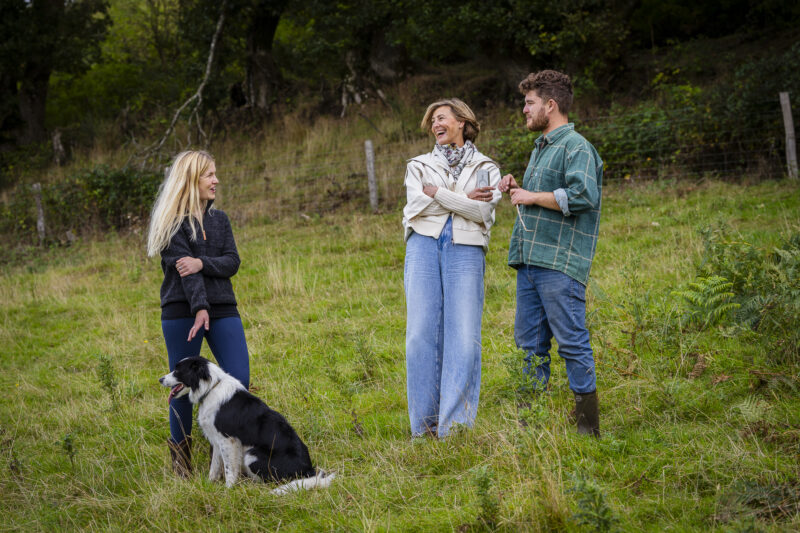
As their herd grew, Lewis and Flora were on the lookout for a spot in Devon to start their own farm. They got a 10-year lease on a piece of land, built a barn, and later a workshop on it. They also set up their own distribution channel, selling their lamb meat directly to customers instead of going through a wholesale market.
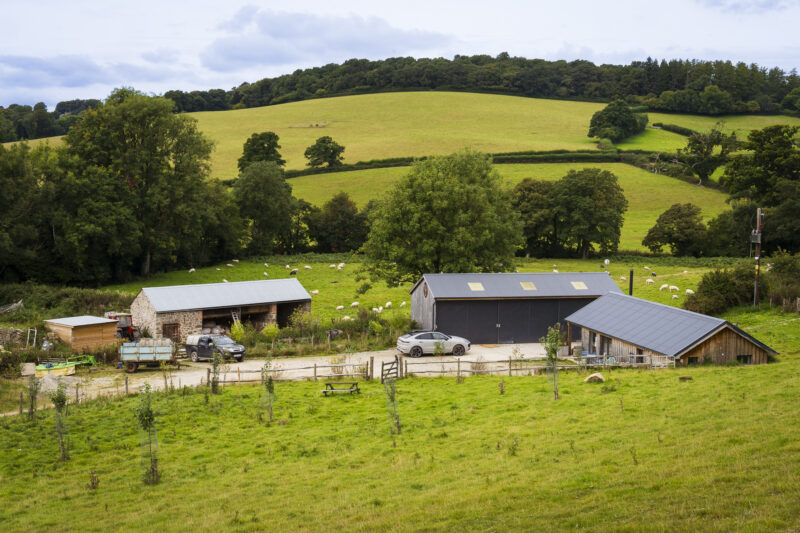
Their old local sheep breeds produced the best-quality sheepskin, so they also began selling all kinds of items made from sheepskin. They opened a local store and an online shop. They do everything in-house with the exception of tanning the hides. Flora and Lewis now work with a small, dedicated team of five people and Moss, their trusty sheepdog.
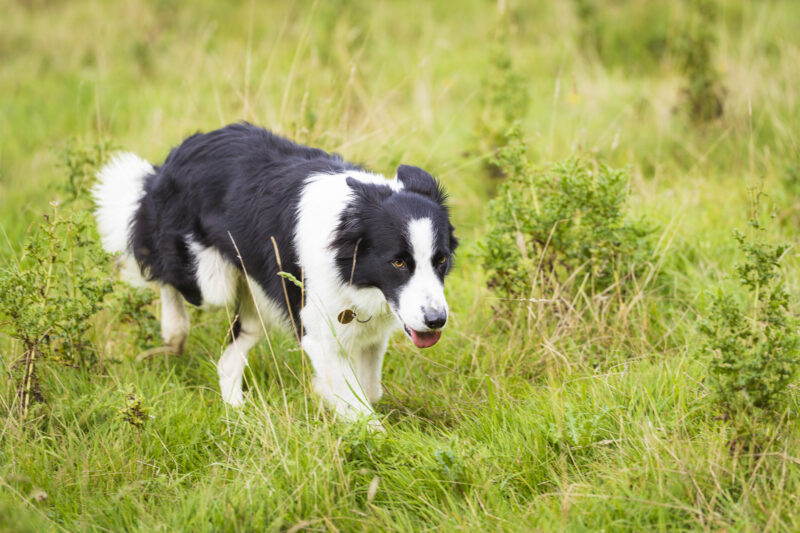
Holistic and organic sheep herding
Lewis and Flora have a holistic and organic approach to their farm. They don't use pesticides, fertilizers, or chemicals. They also follow the idea of using the animals themselves to imitate and help nature. This concept of regenerative farming creates more biodiversity and improves living conditions for the animals. In addition, it allows the farmer to care for the environment and farm at the same time. It's a win-win!
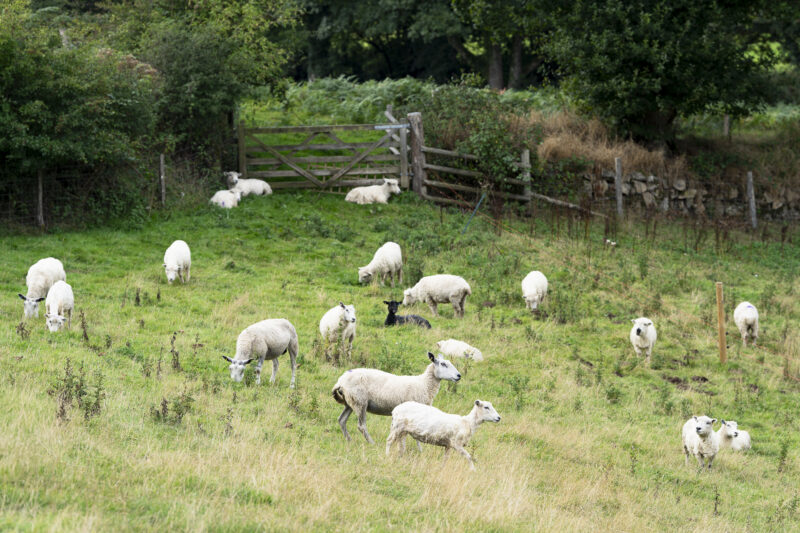
Pasture for Life
Lewis and Flora are members of the Pasture for Life organization, and they follow the low-import principle when it comes to feeding their herd. This means that the animals are only fed vegetation from the pastures. They don't use any nutritional supplements or artificial foods. These are usually made with soy or other imported grains, which goes against their ecological principles. They re-seed the pastures with native flowers and herbs to provide a more varied and balanced diet for their sheep.
Mimick nature
It's been shown that grazing animals help create more biodiversity. Take the large grazing herds on the savannah, for instance. They're always on the move because they're constantly searching for fresh food. If they stay in one spot, there isn't enough to go around. The constant movement allows nature to recover until the next herd passes through.
Lewis and Flora use a similar approach to moving animals on their farm. They never keep their herd on the same pasture for more than three days. During the summer, they even switch pastures daily. This allows the land to regenerate naturally, which in turn encourages the growth of a variety of plants and flowers. This benefits also the wider insect population.
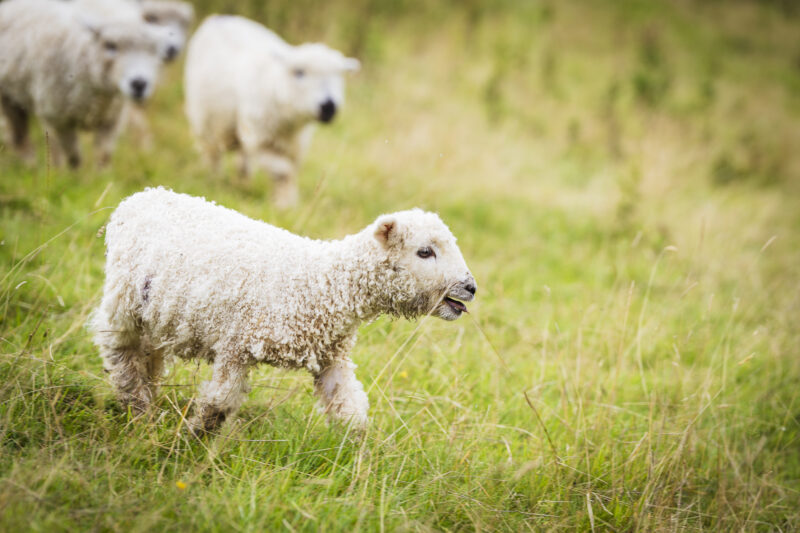
Creating soil
Lewis and Flora are also working on improving the soil quality. Ultimately, better soil means better nutrition for the sheep. The only way to do this is to apply the principle of thirds. The sheep eat a third of the grass and plants, trample a third, and then leave a third untouched. This last third is what helps the field recover. On the trampled flat part, there are sheep droppings that insects come to. These help with the decomposition process and the creation of good soil. Lewis and Flora hope to create a layer of 1 cm of good soil after a few years because 1 cm of soil on 1 acre locks in 9 tons of carbon.
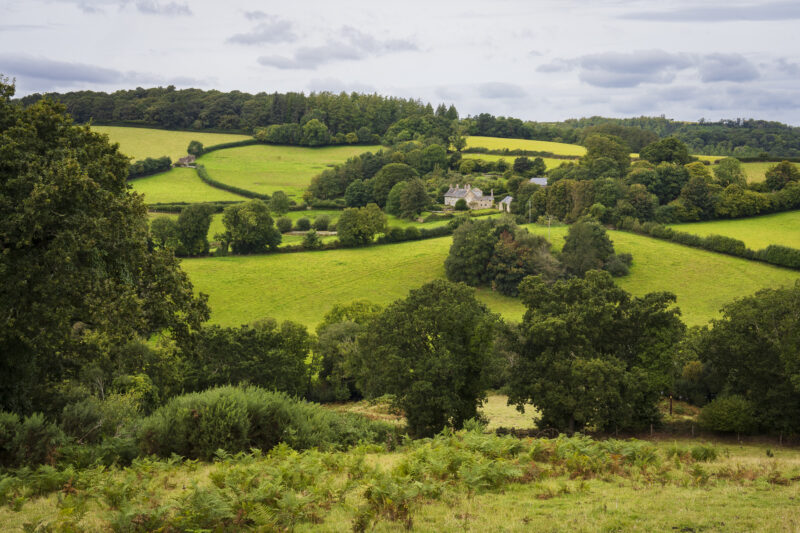
Traditional Dartmoor breeds of sheep
Dartmoor Shepherd is one of the last farms raising the three traditional Dartmoor breeds of long-haired sheep together in a commercial flock. The breeds are the Dartmoor Whitefaced, Dartmoor Greyfaced, and Devon and Cornwall Longwool sheep. These breeds have lived in the Dartmoor area for centuries and are perfectly adapted to the rugged climate and conditions of the region. Sadly, they have also become rare.
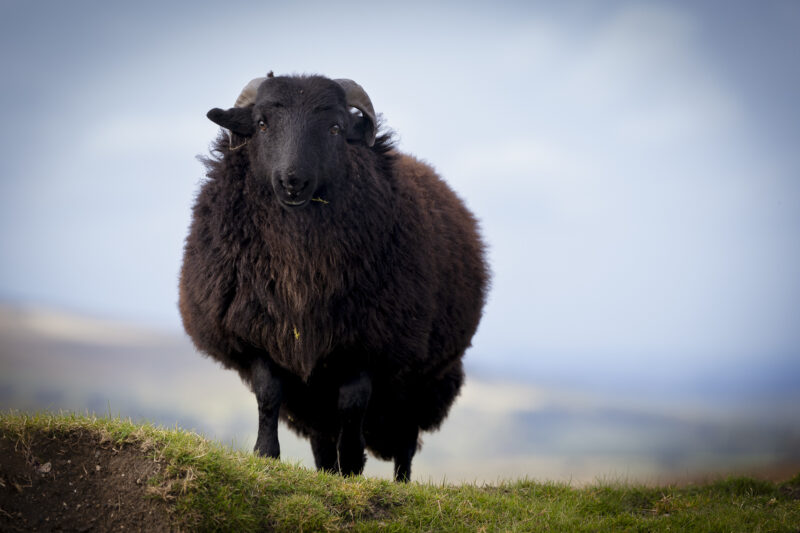
The characteristics of the traditional varieties
- All three breeds are slow growing, so they aren't really well-suited for modern agriculture, which is all about speed and return on investment. They were bred back when the main demand was wool, not meat, and wool has gone from being one of the most valuable resources to basically a waste product.
- Old traditional sheep breeds usually have only one lamb per ewe, while commercial breeds have two or three per year.
- Traditional breeds have so much wool that it's a hindrance to farmers. Now, sheep that shed their own wool are bred so that farmers don't have to shear them anymore.
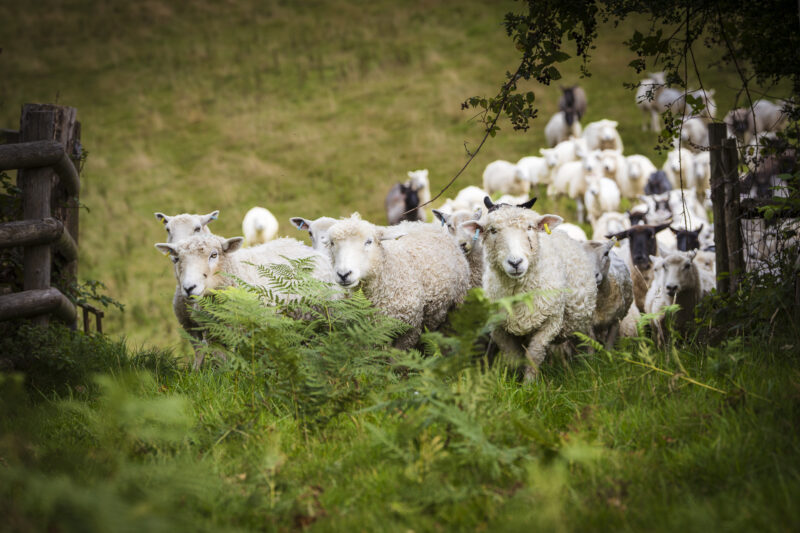
Turning negatives into positives
Lewis and Flora have turned the negatives associated with slow-growing traditional breeds into positives. They sell the lambs that they raise at 18 to 24 months old—they're actually hoggets. These animals go through one winter and build up fat for that colder period. Then, they lose the fat and put it back on in the next spring. The fat is now more marbled into the meat, which is super tender and tastes amazing.
At The Dartmoor Shepherd, Lewis and Flora shear about two tons of wool each year. They not only recycled that wool for the barn and workshop insulation; they also use it to keep the meat cool during transport. The rest is woven into beautiful wool blankets.
The other farm animals
Lewis and Flora are animal lovers through and through, and their farm is home to more than just sheep. It's clear that they have their sheepdogs, but they also have chickens and super cute pigs. Once again, they've chosen a traditional breed, the Tamsworth pig. The animals have a beautiful brownish-red color and are closely related to the wild boar. During our visit, there was a large litter of piglets, some of which had black spots. These come from the sire, who is an Oxford Sandy and Black, another old English pig breed. The plan is to keep some cows as well. These will be Devon Rubies, which have that typical deep red-brown color.
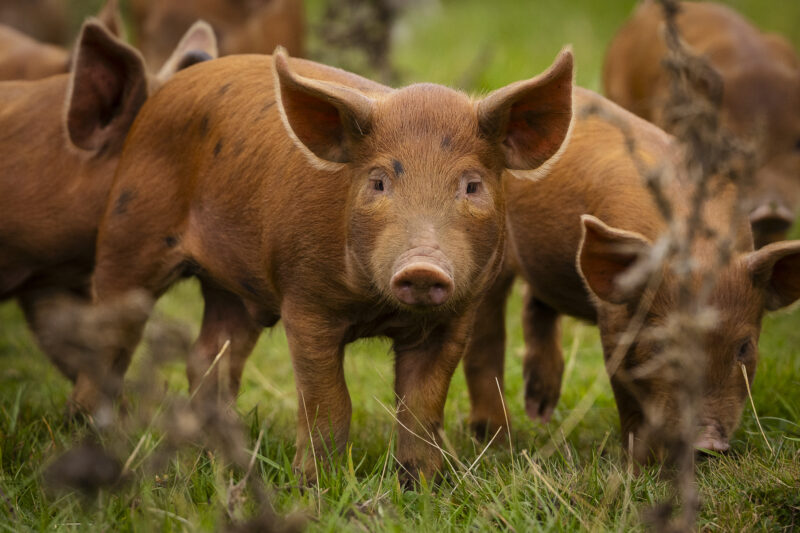
Sheepskin products
Lewis and Flora breed sheep with beautiful, strong coats, and there's a big market for products made with these coats. Again, they follow the low-import rule. The hides are tanned locally in the traditional way, and for everything else they need for production, they work with local suppliers. For instance, they get their labels and printing from Devon, and even the yarn comes from nearby Falmouth.
Lewis and Flora handle the whole production process themselves, except for the furniture. They even design the stencils they use to cut shapes from the skins in-house. Everything is stitched, packaged, and shipped right there in their own workshop.
Would you also like to visit the Dartmoor Shepherd farm or are you curious about the Dartmoor Sheepskins, pillows, wool blankets, and more? Then check out their website! https://thedartmoorshepherd.co.uk/
